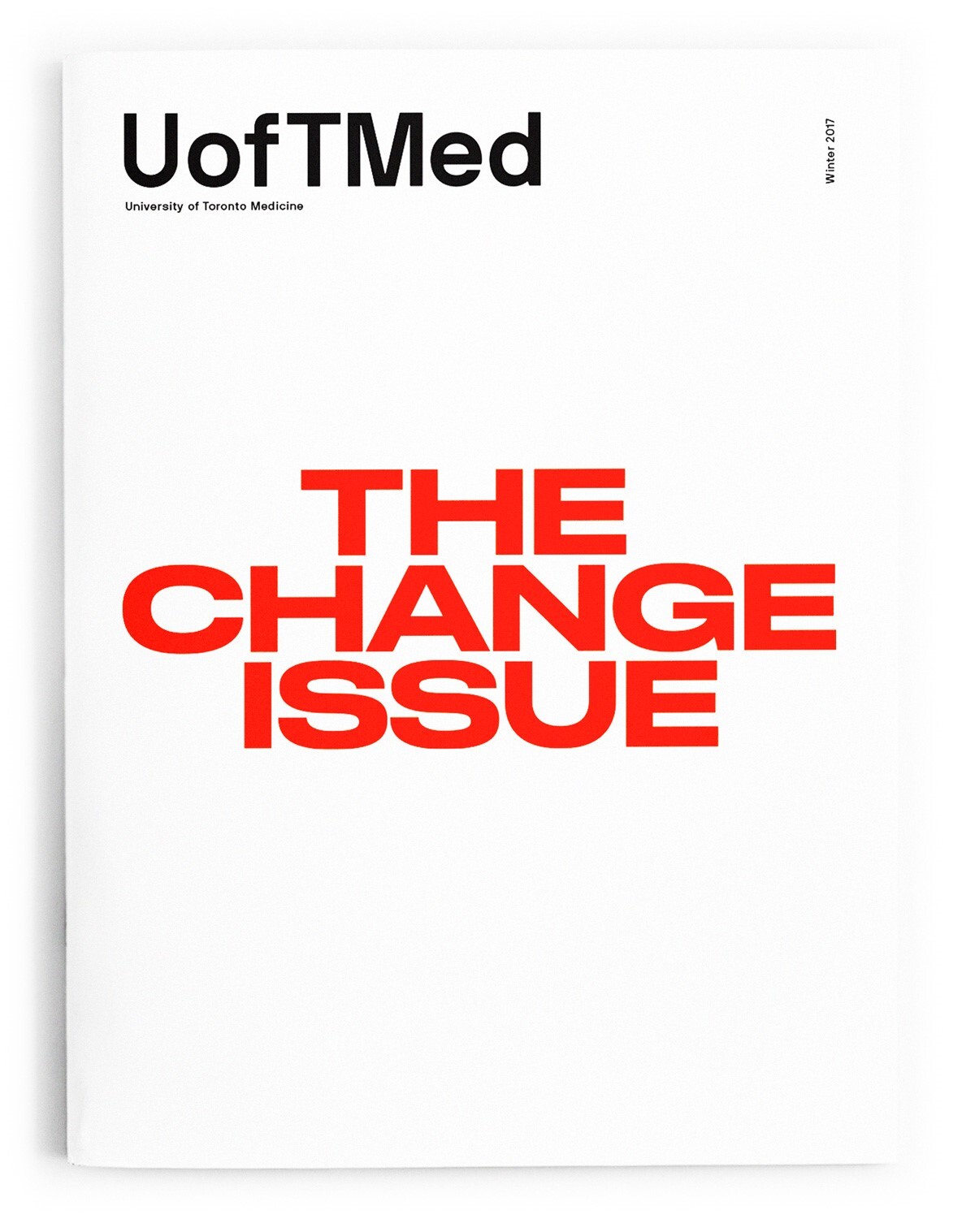Mobile Menu
- Education
- Research
-
Students
- High School Outreach
- Undergraduate & Beyond: Community of Support
- Current Students
- Faculty & Staff
- Alumni
- News & Events
- Giving
- About

 Connecting with Medicine alumni is a formidable task. They’ve got busy practices, labs and lives — half are age 35 to 54, prime years for family life and career demands. Not to mention Netflix.
Connecting with Medicine alumni is a formidable task. They’ve got busy practices, labs and lives — half are age 35 to 54, prime years for family life and career demands. Not to mention Netflix.
So how does U of T Medicine cut through the din and remain relevant once our grads have bid campus farewell? Instilling pride is one way but universities know that means more than waving pendants and sending solicitous emails. Med grads are a sophisticated global crowd — our work has to reflect that.
That’s why we aim to surprise, challenge and (hopefully) delight alumni with UofTMed magazine’s provocative themes and eye-popping design. Twice a year, we handcraft a magazine that will leap out amid the junk mail and stand the test of time on coffee tables, in waiting rooms and hospital lounges.
That’s also why the Council for the Advancement of Scholarship and Education (CASE) named UofTMed its 2016 Magazine of the Year. We joined the esteemed ranks of Stanford Medicine and Harvard Medicine, the first Canadian publication to win in the award’s 73-year history.
So what have we got for alumni this fall? How do we keep getting better?
This fall we’ve refreshed our digital edition — we know the realities of mobile life — to better reflect our spectacular print product. The theme is Change in health care and I hope readers find a range of views to make them think. Major kudos to editor Heidi Singer, designer Raj Grainger and digital specialist Roberta Brown for their skill and attention to detail. And to our faculty contributors, our sincere thanks: your ideas are the backbone of this issue.
As to how we keep getting better, it demands a commitment to creativity and — this might come as a surprise — a commitment to courage. Courage is what’s missing in much of what we read. Think self-promotional language, vanilla-flavored design. It’s familiar. It’s easy to “consume”. It’s not only boring but, I submit, it’s also insulting to magazine readers. If they’re going to invest valuable time with us, we want the UofTMed experience to be worth it!
Sure, there’s a place for corporate reporting and press releases — we do that kind of writing too and it serves specific purposes. But it’s much harder to move hearts and minds. That’s a challenge the MedComms team takes on with pride. To quote a great piece in the Guardian last year:
“The truth is that alumni communications have more in common with journalism than public relations or marketing. At the front of our minds are the same questions: are we giving alumni an insight into something important? Are we helping them to solve a problem? Raising their status amongst their peers? Giving them a frisson of surprise? Graduates have deeply emotional links to their universities and expect that to be reflected in our dealings with them.”
We may not succeed 100 per cent of the time but, as in life, we’ve got the courage to keep trying.
And we want to hear from you — on the theme of Change, let us know what you think needs to change in health care, medical education, biomedical research or in UofTMed.
Linda Quattrin
Executive Director
Office of Communications, Faculty of Medicine

